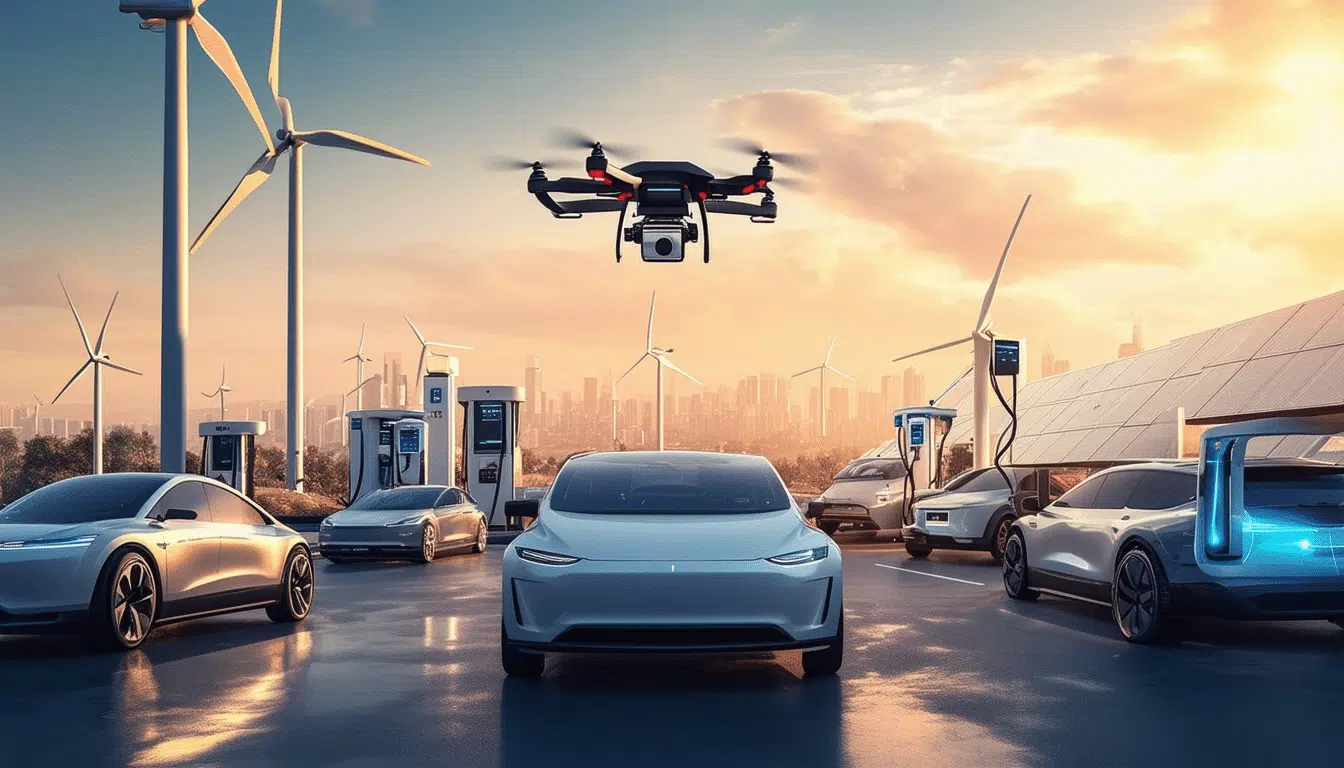Emerging technologies to optimize fuel consumption

In the constant search for sustainability and energy efficiency, emerging technologies play a crucial role in optimizing fuel expenditure. Innovations such as fuel management systems, advanced additives, and smart driving techniques not only help reduce consumption but also promote a greener future. Through these tools, both businesses and individuals can make the most of their energy resources, favoring more sustainable and less polluting transportation.
Currently, the search for energy efficiency has become a priority for both companies and individuals. The emerging technologies that optimize fuel expenditure are revolutionizing the way we consume and manage energy in transportation, offering a wide range of solutions that not only reduce consumption but also minimize environmental impact. This article explores various innovations that are setting the pace in this vital sector.
Fuel Management Systems
Fuel management systems represent one of the most significant advancements in optimizing consumption. These technologies use a combination of advanced sensors and analytical software to monitor and manage fuel use in real time. This allows for the detection of inefficiencies and adjustments that result in reduced expenditure. For example, some fleets are already implementing solutions that integrate GPS and IoT data to provide detailed information about the performance of each vehicle.
Advanced Fuel Additives
Advanced additives are another innovation that is helping to improve fuel efficiency. These chemicals are added to fuels to optimize their performance, increasing engine power and reducing harmful emissions. By improving combustion and overall efficiency, these additives can result in significant long-term savings.
Smart Driving Techniques
In addition to hardware technologies, smart driving techniques play a crucial role in optimizing fuel expenditure. Training drivers to adopt more efficient driving styles can significantly reduce consumption. Strategies such as gliding driving and using adaptive cruise control are examples of how small modifications in driving can have significant repercussions on fuel usage.
Sustainable Fuel
The concept of sustainable fuel is gaining momentum in the future perspective of mobility. It is expected that this technology will emerge as one of the most important in the coming years. From biodiesel to renewable hydrogen, these alternatives promise not only a reduction in emissions but also aim to reduce dependence on fossil fuels.
Sustainable Mobility and Electrification
The electrification of engines and the use of hybrid vehicles are examples of how emerging technologies are transforming transportation. Hybrid vehicles combine the efficiency of an internal combustion engine with an electric one, which not only reduces conventional fuel consumption but also provides the opportunity to harness cleaner energy sources.
Optimization of Use Through Fleet Management
Fleet management, powered by advanced technologies, allows companies to monitor the performance of their vehicles more effectively. Implementing monitoring solutions based on real-time data can help reduce fuel consumption and decrease the carbon footprint. Companies prioritizing sustainability are opting for tools that integrate performance measurements and constant assistance to maximize efficiency.
Innovations in Autonomous Transportation
Advances in autonomous transportation are also changing the game. Autonomous vehicles are designed to optimize routes, speed, and other parameters that contribute to more efficient fuel use. This technology not only meets the need to reduce costs but also promotes a more subliminal development of solutions oriented towards a greener future.
Trends and the Future of Efficient Consumption
As we move towards 2024, emerging trends in fuel consumption management will continue to evolve. Although innovations impacting various industries are already visible, collaboration between technology developers and transport sectors will be critical to implementing practical solutions. The need to reduce fuel expenditure is more urgent than ever, and integrating these technologies into our daily lives can make a significant difference.
Opportunities are numerous and varied, from promoting software for autonomous vehicles to developing sustainable solutions for the aviation industry. These advances will create a more efficient and responsible environment in the use of energy resources.
For more information on how these trends can benefit the automotive industry and beyond, you can check related articles such as China offers incentives, or explore how product prices in the sector are changing by visiting prices decreasing.
It is also fascinating to discover stories of innovation in the industry, such as the transformation of a plane into a limousine; you can read more about it here. Additionally, the pursuit of a more responsible automotive ecology is essential, and you can explore this topic in the article about the future of automotive ecology. For motorcycle enthusiasts, discover the most prestigious brands in the sector.
Emerging technologies are revolutionizing the way fuel expenditure is optimized, driving a new era of efficiency in transportation and logistics. Among these innovations, fuel management systems stand out for their ability to monitor and improve the energy performance of vehicles. These systems use real-time data to adjust fuel consumption, allowing fleets to operate more efficiently and sustainably.
Moreover, the development of advanced additives has shown promising results, as these products not only improve engine performance but also contribute to reducing harmful emissions. With their use, engines run cleaner and more efficiently, translating to lower fuel consumption.
Another significant trend is smart driving techniques, which seek to educate drivers about behaviors that optimize fuel use. These techniques include smart navigation and the use of Adaptive Cruise Control (ACC), which adjusts the vehicle’s speed to maintain optimal efficiency throughout the journey.
The integration of technologies such as the Internet of Things (IoT) and artificial intelligence solutions also offers great opportunities to optimize fuel consumption in fleets. These tools enable constant tracking and real-time improvements, maximizing energy efficiency and minimizing operational costs.
Finally, the push towards sustainable fuels, such as renewable hydrogen and biofuels, represents a paradigm shift towards cleaner mobility. These alternatives are key to achieving sustainability goals and reducing the carbon footprint of the transportation sector.




